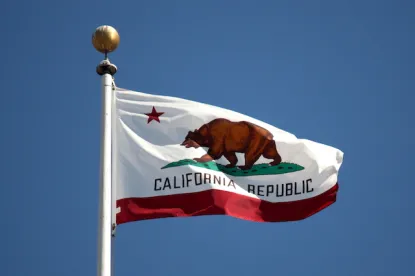Much of the recent discussion regarding Prop 65 has been focused on the regulatory changes going into effect in August of 2018. And that makes sense since there will be significant changes to the warnings, responsibility, and labeling obligations on product websites. There is, however, other activity that may result in a more profound change as to which chemicals require Prop 65 warnings. As we have discussed in the past (see prior post here), there has been litigation in California state court addressing the appropriateness of adding the pesticide ingredient Glyphosate to the Prop 65 list.
Specifically, a CA Superior Court in Fresno rejected Monsanto’s claim that Glyphosate had no business being on the list because the State Office of Environmental Health Hazard Assessment (OEHHA) as well as the U.S. EPA and other regulators had determined that Glyphosate had not been found to increase the risk of cancer. Despite this development, OEHHA decided to list the chemical and supported this decision on the grounds that in 2015 the International Agency for Research on Cancer (IARC) concluded that Glyphosate is a “probable” carcinogen. Monsanto has appealed the Superior Court ruling, but meanwhile the California Supreme Court refused to stay the obligation of Glyphosate manufacturers to warn under Prop 65 and so those warnings were required as of July 7, 2017.
While the-above summarized State court action appeal is pending, a Federal action (Nat’l Ass’n of Wheat Growers, et al. v. Zeise, et al., No. 2:17-cv-02401WBS) was commenced in the Eastern District of California in November 2017. Plaintiffs, a self-described national coalition of farming interests, food producers, Glyphosate manufacturers, and others (e.g., the Missouri Chamber of Commerce) came together to claim that California, through its mandate of requiring Prop 65 warnings on products that contain listed chemicals – despite as argued in the Monsantocase, that the required warning is factually wrong – has violated and continues to violate the First Amendment’s guarantee of free speech and the Supremacy Clause of the U.S. Constitution.
Plaintiffs argue (1) that the First Amendment prohibits the government from compelling individuals or entities to engage in speech; and (2) that the Supremacy Clause requires State laws that conflict with Federal laws to be preempted. Because Glyphosate is a herbicide, its labeling is governed by certain Federal regulations implemented and enforced by the EPA. They have requested that the Federal court declare OEHHA’s action to be improper and enjoin OEHHA from continuing to list Glyphosate as a chemical that requires a Prop 65 warning.
Senior Judge William B. Shubb has ordered the parties appear for a hearing on February 20, 2018 to argue the plaintiffs’ motion for preliminary injunction.
Judge Shubb also granted a petition of 11 State Attorneys General (representing Missouri, Idaho, Indiana, Iowa, Kansas, Louisiana, Michigan, North Dakota, Oklahoma, South Dakota, and Wisconsin – and it should be noted that all but the Iowa Attorney General are Republications, but Iowa is a major producer of corn) to file a friend of the court brief in the case. In that amicus brief, the Attorneys General, led by Missouri, pointed out that California’s Prop 65 mandated warnings impede the duty of States to protect their own citizen-consumers as well as States’ economic freedoms to stimulate growth as local policymakers see fit.
It has long been the complaint of businesses not directly selling into California that the Prop 65 warning requirement on their products is fundamentally unfair. The Attorneys General amicus brief also supports these business concerns by explaining:
“The mandate [Prop 65 warnings] undermines consumer-protection laws passed by other States because it requires nonresident businesses to label products with false, misleading information, contrary to the consumer-protection policies of other States. The requirement encroaches on the equal sovereignty of other States and threatens to inflate food prices for all Americans, especially the neediest, without any plausible justification.
The First Amendment injuries identified by Plaintiffs are heightened because they adversely impact the sovereign interests of other States in at least two ways. First, by requiring false or misleading statements about glyphosate products, California’s speech mandate imposes confusing and potentially inconsistent obligations on nonresident businesses that are bound by other States’ consumer-protection laws not to make false and misleading statements about their own products. Second, the speech mandate impairs consumer-protection efforts of the States that require sensible health-and-safety disclosures by contributing to the well-known phenomenon of disclosure fatigue.”
Proposition 65, routinely criticized for its overbreadth, is the quintessential example of a regulation that causes disclosure fatigue.
The Attorneys General further assert that studies have confirmed what common sense dictates: the more ubiquitous disclosures become, the less effective they are.
Because many businesses cannot readily separate California-bound products from other products, the Prop 65 warning mandate encourages those businesses that do not withdraw entirely from California markets to place the required disclosure on all merchandise, regardless of the ultimate destination. That torrent of additional disclosures in States outside California decreases the efficacy of disclosures already required by those States. When disclosures become the rule, not the exception, consumers tend to ignore them. An otherwise useful tool becomes transformed into nothing more than irritating ambient noise. By providing a strong incentive to print misleading, unnecessary disclosures on products sold in other States, California’s regulation dilutes the effectiveness of other States’ mandated disclosures and undermines consumer-protection efforts in those States.
The amicus brief also argues that by creating a regulation with such a broad adverse economic reach, California has twisted the effect of the consumer-protection laws of other States. The Prop 65 regulation deprives those States of their powers to promote the general welfare of their citizens and therefore encroaches on their sovereignty.
Not all Prop 65 chemicals have the same issues that exist with Glyphosate and the axiom that “bad facts make bad law” may come into play here, such that any ruling by the Federal court may be narrow and will certainly be appealed. Notwithstanding that likelihood, the trial court’s ruling on the preliminary injunction motion will be important and perhaps a first step in getting both the California courts and legislature to take a hard look at where Prop 65 has serious flaws and requires a major overall.
We will be following this case closely and reporting on it accordingly.




 />i
/>i

